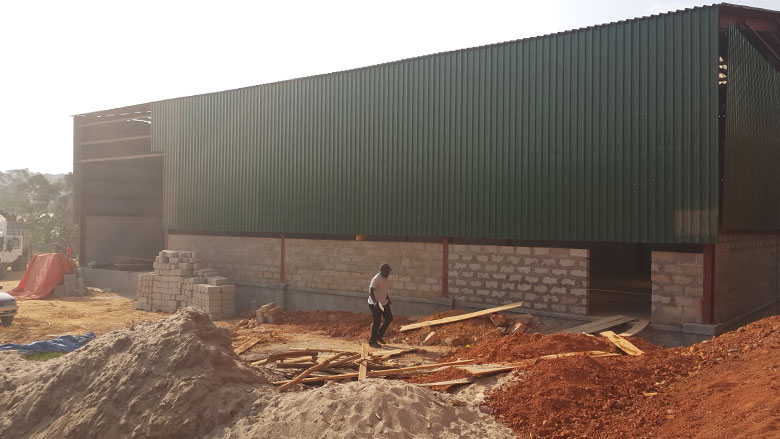KAMPALA, February 23, 2017 – For more than 10 years, Joseph Bwire and his partner Matia Mubangizi ran their grain milling business, Arise and Shine Millers, out of Kisenyi – a crowded backwater slum area in Kampala, Uganda’s capital city.
Like many businesses in this location, Arise and Shine Millers operated informally without paying taxes or for utility services. In 2011, Bwire and Mubangizi, decided to quit the informal cat and mouse game. They registered their business and relocated to Kawempe, an upcoming business and industrial area. Mubangizi said they decided to go formal because their business was bound to stagnate if they continued in that manner.
“When you operate informally, your suppliers deal with you with a lot of reservations; and worry about your integrity,” said Mubangizi, general manager of the company. “When you don’t have permanent address, it is very difficult to build trust with your customers, and importantly, your reputation is questionable.”
But without clear direction or a business plan, the business owners still faced challenges. That all changed last year with a $6,000 grant (UGX 22 million) from the Matching Grant Facility supported by the World Bank. With the grant and their required 50% match, they were able to hire a consultant to review their operations and develop a five-year strategic business plan.
“The diagnostic study was an eye opener,” Mubangizi said. “We realized that we made decisions without basis, we committed expenses to items or activities that were not necessary and this was costing us the bottom line.”
Arise and Shine Millers is one of 313 micro, small and medium enterprises (MSMEs) that have benefitted from the grant facility, run by the Private Sector Foundation of Uganda. The grant facility, a component under the World Bank-supported Competitiveness and Enterprise Development Project (CEDP), aims to improve the competitiveness of enterprises in Uganda by addressing some of the constraints that inhibit productivity, growth and competitiveness.
More than 2.5 million Ugandans are employed in MSMEs, which makes up about 90% of the country’s private sector. However many firms lack access to loans, making it difficult for them to expand, said Moses Kibirige, World Bank private sector specialist and task team leader for CEDP.
“SMEs are perceived as high risk by financial institutions, as there is little information available on their operations,” Kibirige said. “SMEs do not have audited financial statements and credit bureau coverage is very limited in Uganda. To compensate, banks demand high levels of collateral, predominantly immovable, which most SMEs do not have.”
With the grant, business owners can pay for a number of services to enable them become more competitive, including management training and advisory services, business plan development and financial management. The grants, which target firms in key priority sectors such as tourism, agribusiness and fisheries, are expected to spur the diversification of products, and help increase exports. Since the launch of the grant facility, more than 214,000 people have benefitted, and more than half of them are women. About 228 new jobs have been created, and business owners who have received grants have recorded a 3% sales increase in their businesses.
For Bwire and Mubangizi, their milling business has not only grown, but it has expanded to command more than 90% of the market share for maize meal supplied to the Northern Uganda market, which is also their source market for grains. With the increase in demand, they have increased milling hours from 16 hours to 20 per day, and they are building a new warehouse to hold their new, state-of-the-art milling machinery. Soon, they plan to expand very soon to the Kenyan market, one of the biggest consumers of maize meal in the region.
“I encourage my fellow business people operating informally, to legalize their status,” said Mubangizi. “The benefits are immense. There are lot of opportunities in this country, you only need to know where to get it from.”

